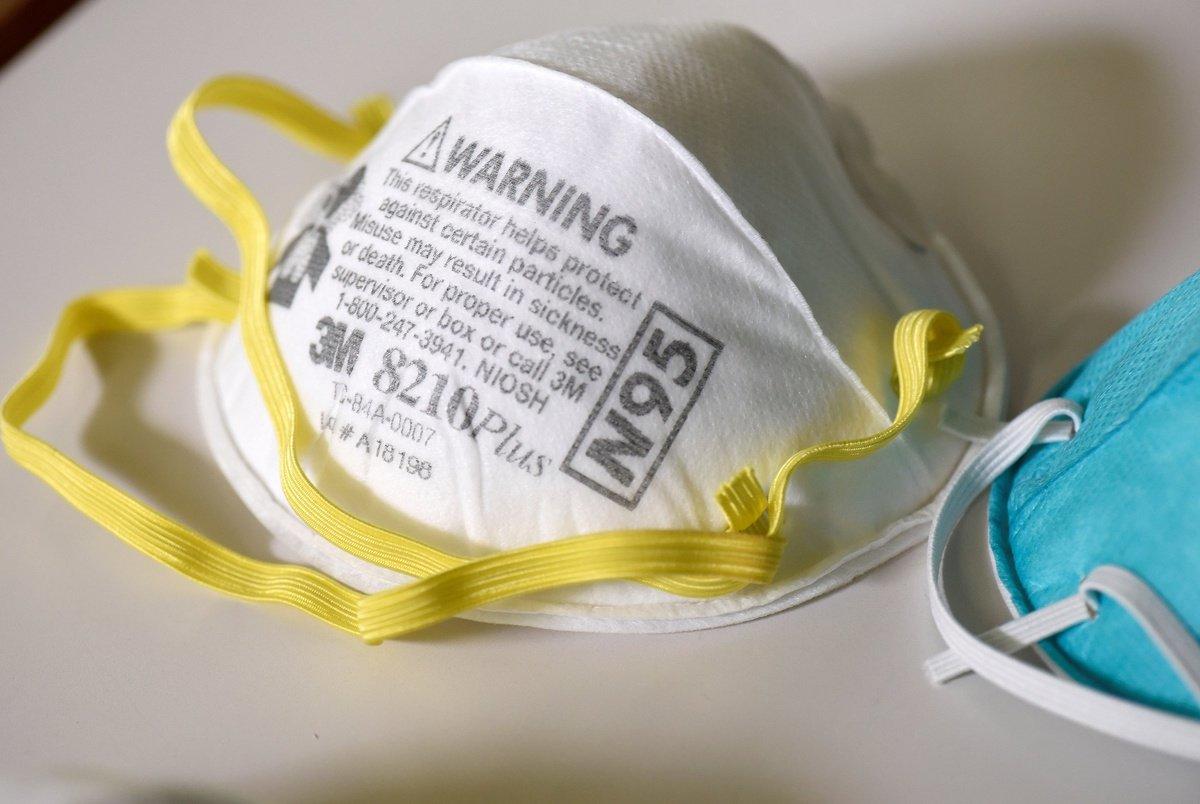Amazon Bans Sale Of N95 And Surgical Masks To General Public
Amazon has banned the sale of N95 and surgical masks to the general public, claiming it would restrict sales to hospitals and government organizations dealing with the COVID-19 pandemic.
The ban took effect April 1, according to Recode, after the company said in a forum for Amazon sellers that the ban includes “facial shields, surgical gowns, surgical gloves, and large-volume sanitizers.”
Hospitals and governments can qualify to purchase said items by filling out a form, while Amazon will be eliminating the commission it usually charges sellers in order “to encourage our selling partners to make additional inventory of these products available at competitive prices to these customers with the greatest need.”
The move is the latest drastic change Amazon has made to its business practices amid the global pandemic that has upended billions of lives and economies across the globe. Amazon has become a lifeline to essential goods during this time for millions of customers ordered to stay at home and those fearful of shopping in stores during the crisis.
In mid-March, faced with merchandise shortages in the United States and Europe due to the pandemic, Amazon instituted sweeping changes on which products it will store and ship from its warehouses, in a move it said was aimed at keeping essential items in stock and speeding up orders. –Recode
Two weeks ago, the Seattle-based e-retailer said that it would be “temporarily prioritizing household staples, medical supplies, and other high-demand products coming into our fulfillment centers so that we can more quickly receive, restock and deliver these products to customers,” meaning it will no longer accept new shipments to warehouses for discretionary items through at least April 5.
The company will continue to sell products on its websites, however sellers listing discretionary items will have to wait to ship them on their own if they aren’t already in – or on their way, to an Amazon warehouse. Products which can be shipped include: “baby products, health and household, beauty and personal care, grocery, industrial and scientific, and pet supplies.”
Third-party resellers who participate in the Fulfillment by Amazon program, as well as wholesale vendors who sell directly to the company were notified of the changes.
“We are seeing increased online shopping, and as a result, some products, such as household staples and medical supplies, are out of stock,” said an Amazon spokesperson in a statement, adding “We understand this is a change for our selling partners and appreciate their understanding as we temporarily prioritize these products for customers.”
With governments across the globe recommending and even mandating that people stay inside during the pandemic, more shoppers are turning to Amazon to stock up rather than visiting brick-and-mortar stores. But the rush of shopping in select categories has meant frequent out-of-stock messages for items ranging from hand sanitizer and hand soap to face masks, as well as sellers taking advantage of low supply by attempting to price-gouge customers.
This restriction on which items it will store in warehouses — coupled with Amazon’s announcement that it was hiring 100,000 warehouse workers to keep up with surging demand — highlights the level at which consumers are relying on online shopping during the pandemic. At the same time, it’s also a realization that even the endless digital aisles of Amazon’s Everything Store, and Amazon’s logistics prowess, were not built to fully sustain the change in consumer behavior that the pandemic has forced essentially overnight. –Recode
News of the changes were greeted with panic – as third-party sellers logged in to find that their business was about to suffer a serious setback.
“Amazon just put tons of businesses out of business,” said one seller on Amazon’s forum. “Destroyed thousands of jobs amidst a crisis. Horrible joke. Absolute joke. No warning. Expect major lawsuits coming from sellers who now will go bankrupt.”
“It’s not doable,” wrote another seller. “Most of us do not have the infrastructure in place. We do not have the boxes or packing material to do this.”
Amazon said in the notice that they understand “this is a change to your business, and we did not take this decision lightly.”
Others were ok with the move, such as Will Tjernlund, CMO of Amazon seller consultancy Goat Consulting – who think it was a good move, and that sellers will be able to weather the storm.
“I am happy Amazon is focusing on fulfilling essential items over figuring how to ship couches or flatscreen TVs,” he said.
Tyler Durden
Thu, 04/02/2020 – 16:00
via ZeroHedge News https://ift.tt/347at3y Tyler Durden
